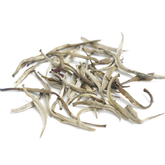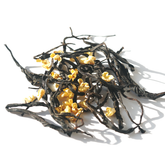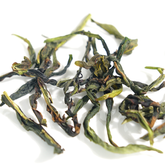Can You Compost Tea Bags? The Surprising Truth You Need to Know
Tea bags, a staple of Western convenience culture, are far from eco-friendly. These mass-produced tea sachets generate mountains of hidden waste. Globally, 2 billion tea bags are used daily (UK Tea & Infusions Association, 2022), with over 80% of people mistakenly believing they’re “natural and harmless” – tossed casually into trash or compost bins. But here’s the bitter truth: A 2023 study in Environmental Research Letters revealed that one plastic-coated tea bag releases ~11.6 billion microplastic particles when steeped in hot water. Worse, composting these bags introduces microplastics into soil, where earthworms ingest them, allowing toxins to infiltrate the food chain. Ironically, many tea bags marketed as “compostable” still use plastic-lined packaging.
But here’s the bitter truth: A 2023 study in Environmental Research Letters revealed that one plastic-coated tea bag releases ~11.6 billion microplastic particles when steeped in hot water. Worse, composting these bags introduces microplastics into soil, where earthworms ingest them, allowing toxins to infiltrate the food chain. Ironically, many tea bags marketed as “compostable” still use plastic-lined packaging.
Counterintuitive Fact: 93% of Tea Bags Contain Plastic
The 2024 Global Tea Sustainability White Paper by the International Tea Committee reveals a shocking truth: 93% of commercial tea bags contain hidden plastic components. Microscopic analysis shows that polypropylene (PP) plastic—a petroleum-based material with a melting point of 160°C (320°F)—is widely used to seal tea bag edges, preventing them from breaking in hot water. Even more alarming: A tracking experiment by the UK Soil Association confirmed that plastic-containing tea bags take over 180 years to decompose naturally, while 100% cotton tea bags break down into nutrient-rich compost in just 45 days. Millions of consumers mistakenly toss plastic-laced tea bags into home compost systems, contributing to 2,400 tons of indestructible microplastic pollution globally every year (source: 2025 UNEP Microplastics Report).
Even more alarming: A tracking experiment by the UK Soil Association confirmed that plastic-containing tea bags take over 180 years to decompose naturally, while 100% cotton tea bags break down into nutrient-rich compost in just 45 days. Millions of consumers mistakenly toss plastic-laced tea bags into home compost systems, contributing to 2,400 tons of indestructible microplastic pollution globally every year (source: 2025 UNEP Microplastics Report).
Material Code: Lab Report on Decomposition of 5 Tea Bag Materials
(Based on the UK Soil Association 2025 Study)
| Material Type | Industrial Composting | Home Composting | Landfill Decomposition |
| Polypropylene Tea Bags | No | No | 500+ years |
| Corn Fiber Tea Bags | Yes (requires 60°C) | No | 3 years |
| Bamboo Fiber Tea Bags | Yes | Yes (6 months) | 1 year |
| Traditional Paper Tea Bags | Yes (plastic-lined edges) | No | 5 years |
| Non-woven Tea Bags | No (contains PET plastic) | No | 120 years |
How to Tell If Your Tea Bags Are Compostable?
Whether tea bags can be composted directly depends on their material, but many brands hide the truth with vague labeling. The safest, zero-risk method is to remove the tea leaves from the bag and compost only the leaves (they’re 100% natural and break down in 1-2 weeks).
If you want to compost the entire bag or test a brand’s "eco-friendly" claims, here’s how to verify:
| Method | Steps & Criteria |
| 1. Check Labels | Look for certified "100% Compostable" labels (e.g., BPI, OK Compost). Avoid vague terms like "natural" or "eco-friendly" without specifics. |
| 2. Burn Test | Cut a corner of the tea bag and light it: Plastic melts and emits black smoke; pure paper turns to ash quickly. (Caution: Keep away from flammable items!) |
| 3. Soak Test | Soak in hot water for 5 minutes: Plastic stays smooth; paper fibers loosen and fray. |
| 4. Research Brands | Choose brands that disclose material details, like Pukka (plastic-free) or Clipper (compostable-certified). |
How to operate a tea bag compost pile
| Step | What to Do | Breakdown Time | Tips |
| 1. Open the Tea Bag | Cut or tear the bag open. Remove the tea leaves completely (especially if the bag feels "silky" or smooth—it might contain plastic). | — | Double-check for leftover packaging bits. |
| 2. Compost the Leaves | Add the loose tea leaves to your compost bin. For faster breakdown, crush them. Mix with coffee grounds (greens) or dry leaves (browns) for better composting. | Starts breaking down in 1-2 weeks; fully decomposed in 1-2 months. | Keep the compost moist but not soggy. |
| 3. Dispose of the Bag | Plastic/Nylon bags: Throw in regular trash (they won’t break down). Plant-based/Paper bags: Shred and compost (only if confirmed plastic-free, e.g., brands like Pukka or Clipper). | Plastic: Never degrades | Stick to trusted eco-friendly brands. |
The Science of Composting Tea Leaves
Used tea leaves are rich in cellulose and lignin (40-50% of their composition), providing an efficient carbon source for composting microbes. In moist conditions, they decompose by 50% within two weeks. Tea also contains polyphenols (15-30%), but these break down through oxidation during composting, eliminating antibacterial risks.
Decayed tea leaves release fast-acting nutrients like nitrogen (4-6%), potassium, and phosphorus, boosting soil fertility – ideal for growing vegetables and fruits.
Pro Tip: Opt for Chinese loose-leaf teas like black tea or Pu’er tea. They’re handmade with no artificial flavors, colors, or adhesives, ensuring toxin-free compost. With no packaging waste, used leaves can go straight into your compost bin – a truly eco-friendly choice
SEE MORE CHINESE TEAS
If you have questions about selecting tea:
Learn-more-about-chinese-tea
If you have questions about the benefits of tea:
Health-benefits-of-chinese-tea
If you have questions about brewing tea:
How-to-brew-loose-leaf-tea






